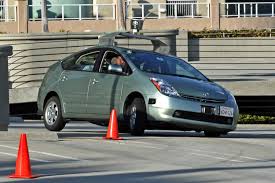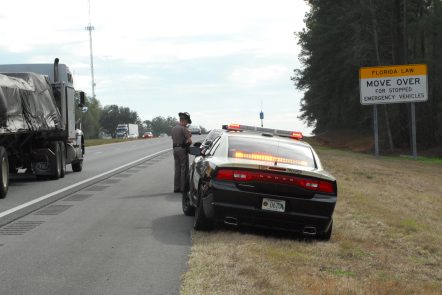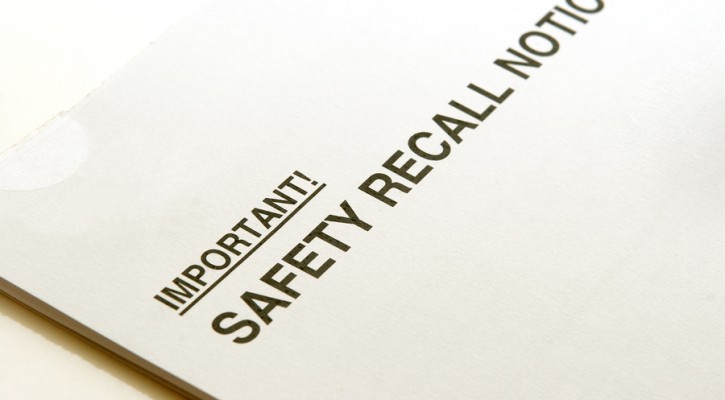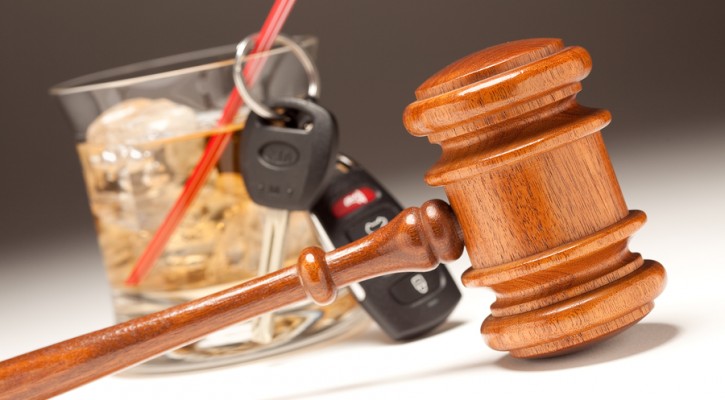Category Archive: Legislation

Congress Looks To Reverse Rules Preventing Drowsy Driving By Truckers
June 5, 2014
In response to an 18 percent increase in large truck fatalities since 2009, the Federal Motor Carrier Safety Administration (FMCSA) enacted new rules last year to require adequate rest periods for truckers similar to the rules that have long been in place for airline pilots and railroad engineers.
Now, in response to pressure from trucking lobbyists, some in congress are considering reversing those rules. The US Department of Transportation is seeking help from the public to prevent the roll-back of those rules. Read more: http://www.transportation.gov/fastlane/hours-service-rule-protects-families-fatigued-drivers

California DMV Sets Rules For Driverless Cars
May 29, 2014
The California DMV has laid out a set of rules for vehicle manufacturers seeking to test driverless cars on California highways. Drivers must be in the seat, ready to take over and manufacturers must post a $5 million bond. Read more: DMV Lays Out Rules Governing Self-Driving Car Tests

Move Over Law: Life Saver Or Income Generator
May 21, 2014
A recent Atlanta TV station report interviewed Atlanta area drivers who received tickets for failure to comply with Georgia’s Move Over Law and seems to question the motives behind the enforcement of that law, especially in certain Atlanta metro counties.
For those unfamiliar with this law and, according to a 2007 survey, that’s approximately 70% of you, the Move Over Law was designed to protect emergency workers and first responders who are working on the side of the roadway. Since 1999, 213 law enforcement officers have been struck and killed while aiding motorists on the side of the roadway, an average of more than one per month.
The need for the law was re-emphasized recently by the death of a veteran Florida Highway Patrol officer and mother of a four year old boy. While working a crash scene on a Florida interstate, Trooper Chelsea Richard was struck and killed when a pickup truck traveled onto the shoulder of the road and struck her patrol vehicle. A tow truck operator and pedestrian were also killed.
A version of the Move Over Law has been enacted in all 50 states and requires motorists who encounter an emergency vehicle on the side of the roadway, with its emergency lights flashing, to move over into a lane away from that of the emergency vehicle or, if it’s impossible to move over into the opposite lane, to slow down to a safe speed. Kansas passed the first Move Over Law in 2000, and Hawaii became the 50th state to enact a version of the law in 2012.
The problem with the law, as written in some states, is that it is vaguely worded. Georgia’s law requires that motorists who are unable to move over into another lane “reduce the speed of the motor vehicle to a reasonable and proper speed for the existing road and traffic conditions, which speed shall be less than the posted speed limit, and be prepared to stop.”
The drivers cited in the TV report claim that they had slowed down but were issued tickets anyway. While they felt that the purpose of the law is necessary, they felt it was being misinterpreted by some law enforcement agencies and some, based on the number of tickets written in certain Georgia counties, feel that those counties are subverting the intent of the law to generate extra income for county coffers.
Other state Move Over Laws are less vague. Florida’s law requires that motorists who are unable to move over into another lane “Shall slow to a speed that is 20 miles per hour less than the posted speed limit when the posted speed limit is 25 miles per hour or greater; or travel at 5 miles per hour when the posted speed limit is 20 miles per hour or less. That requirement is easily understood by motorists and can be measured by law enforcement officers.
Florida’s law not only includes emergency vehicles such as police and fire but also tow trucks and a recently passed amendment to the law will include sanitation vehicles (garbage and recycling trucks) and utility service vehicles (water, gas, electric, or cable) that are parked by the side of the road with emergency lights flashing. Basically, in Florida, if you see any vehicle parked by the side of the road with blue, red, or amber lights flashing, you should treat it as an emergency vehicle and know that the Move Over Law applies.

Commercial Drivers Must Be Examined By A “Certified” Physician
May 13, 2014
Beginning May 27, 2014, to acquire or update a medical certificate, all holders of commercial drivers licenses must be examined by a physician who has been trained and certified by the Federal Motor Carrier Safety Administration (FMCSA). Read More: Federal government to require commercial drivers pass medical exams beginning in May

Recall Repairs Not Required For Rental And Used Cars
May 12, 2014
There is currently no law requiring used car dealers and rental car agencies to make vehicle recall repairs before renting or selling to the public and some renters and purchasers have found out about this lack of legislation the hard way. Read more: Recalled Used Cars Roam the Roads as Federal Legislation Stalls

Changes to Florida’s DUI Law
May 8, 2014
Without much fanfare, the 2014 Florida legislature passed a transportation bill that included changes to Florida’s DUI law and installation of Ignition Interlock Devices (IID) for first time DUI offenders.
Under the current law, judges are required to order installation of an IID for anyone convicted of a second or subsequent DUI offense or for a first time DUI offender who, at the time of arrest, had a Blood Alcohol Content (BAC) of .015 or higher or who were transporting a passenger under the age of 18. IID’s must be installed for a minimum of six months for a first time offender and two years for a second offense. IID’s must be installed on all vehicles that are individually or jointly leased or owned and routinely operated by the convicted person.
In the measure just passed by the legislature, judges aren’t required to but have been granted the leeway, if they feel it is warranted, to order installation of an IID for a minimum of six months for first time offenders who had a BAC of .08 or higher.
In addition to installation of an IID for those convicted of DUI, judges also have the leeway to order either; twice daily Breathalyzer tests, continuous transdermal alcohol monitoring, or random blood, breath, urine, or oral fluid testing. Installation and operation of the IID and any drug and alcohol monitoring must be paid for by the convicted individual.
This new law will take effect on July 1, 2014.

2014 Florida Legislature: Which Driving Safety Bills Passed And Failed?
May 6, 2014
The Florida Legislature ended its 2014 session on May 1st after enacting some changes to Florida’s driving laws but not as many as some lawmakers had hoped. Some of the bills that passed late in the session, as of this date, haven’t been signed into law and some are hoping that at least one of the bills will be vetoed by the governor. Let’s look first at the bills that didn’t make it to a vote this year.
Red Light Camera – This bill was introduced by opponents of red light cameras hoping to severely restrict their use and to limit how funds generated by the red light cameras could be distributed to local governments. The bill failed to make it out of the Transportation committee.
Texting While Driving – The legislature passed a ban on texting while driving in the 2013 session but limited it to a secondary offense, meaning that a texting driver had to be stopped for some other traffic infraction before a ticket could also be written for the texting offense. This bill sought to remove that restriction and make texting while driving a primary offense meaning that a driver could be stopped for that violation alone. The bill failed to make it out of the transportation committee.
Bills Passed By the Legislature
Child Safety Seat – Florida had one of the weakest child safety seat laws in the nation and this bill in its original form sought to require child protection seats for children ages seven and under unless the child was at least 4’9” tall. That would have brought Florida’s child safety seat law in line with the recommendations of the Insurance Institute for Highway Safety and laws in most other states. As passed however, the bill only requires child safety seats for children aged five and under. Under this bill, children over the age of three and under the age of six who have outgrown their integrated child safety seat must be restrained in a booster seat. If signed by the governor, the law will take effect on July 1, 2014 with a grace/education period until January 1, 2015, when law enforcement will start issuing traffic citations.
General Transportation Bill – This bill covers a broad range of transportation issues but for driving safety issues the bill strengthens the Florida DUI law allowing judges more leeway in requiring the installation of ignition interlock devices and also gives judges the ability to order twice a day breathalyzer tests for certain DUI offenders. The bill changes the Move Over Law that requires drivers to either move over into another lane or slow to 20 mph under the posted speed limit when passing emergency vehicles and tow trucks to include sanitation and utility vehicles operating by the side of the road.
Hit And Run Loophole – This bill, known as the Aaron Cohen Life Protection Act, closes what many thought was a loophole that allowed alleged drunk drivers to escape harsher penalties if they fled the scene of a crash and waited until they were sober to turn themselves in. Under the new bill, a driver who flees the scene of a crash that results in death or serious bodily injury will face four years in jail and a three year revocation of their driving privileges. This bill will take effect on July 1, 2014.
Speed Bill – This bill gives the Department of Transportation authority to increase the speed limit on interstate and other major highways. Proponents of the bill feel that the speed limit is being raised to reflect the speed that drivers already drive. Opponents feel that if the speed limit is increased, drivers will continue to speed even faster and the traffic death rate will increase. Some speculate that insurance rates will also increase if this bill is signed into law. The bill barely passed and many are calling on the governor to veto the bill.

Do Massive Recalls Mean Newer Vehicles Aren’t As Safe?
April 28, 2014
Does the news that millions of vehicles from a variety of manufacturers are being recalled mean that newer vehicles aren’t as safe as older models? Not necessarily, says this author. Using the same part in multiple vehicles and the increased scrutiny by federal officials after the failure of Toyota and GM to recall dangerous vehicles may mean manufacturers are getting the word to pay now or pay even more later. Read more: The Auto Recall Frenzy Isn’t What You Think

Tougher Penalties Needed For Distracted Drivers
April 16, 2014
The province of British Columbia in Canada has the toughest DUI laws in North America but the BC Attorney General points to data showing distracted driving kills more people than drunk driving. She is calling for penalties for distracted driving equal to those for drunk driving. Read more: B.C. mulls tougher distracted driving laws

Florida Legislature Looks At Increasing Speed Limit
April 1, 2014
Raising the speed limit from 70 to 75 mph will result in speed increase of just seven percent. However, a 3,000 lb. vehicle hitting a solid object at 70 mph will experience a crash force of 491,744 lbs. but that same vehicle striking a solid object at 75 mph will experience a crash force of 564,502 lbs., an increase of 14 percent.
Add to that, the tendency of many drivers to drive 5 mph over the speed limit and the crash forces rise to 642,277 lbs., an increase of 30 percent. Read more: Bill to increase speed limit heads to Senate floor
